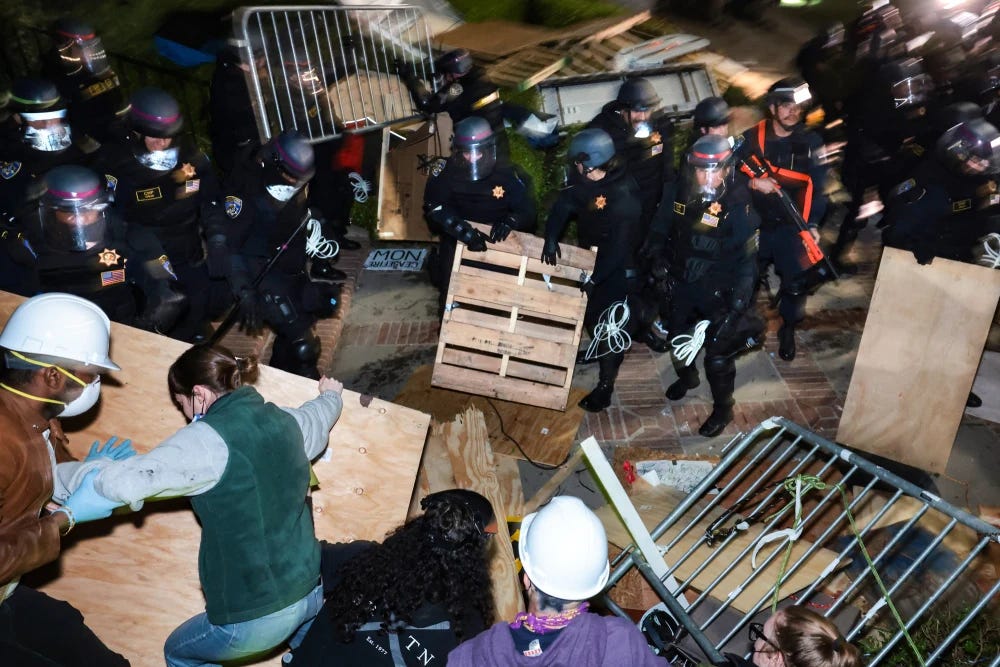Universities' new rules. Retreating from free speech over Gaza.

Summer is coming to a close and the nation’s colleges and universities have begun to start. Some already have started holding classes.
Last year ended with over 500 campuses witnessing protests and encampments protesting the slaughter in Gaza.
I’ve seen nothing like it since the anti-war and anti-draft movement in the sixties.
University administrators have not been pleased. Some university presidents have been fired for being too soft in spite of the university presidents calling on police to enter the campus and violently breaking up peaceful encampments.
Among the most violent incidents took place at UCLA where pro-Israeli thugs attacked the encampment while university police stood by and let the thugs run rampant.
As Palestinian students and allies are planning actions for the Fall, school administrators are making plans of their own.
At the University of Michigan, many student activities are usually funded or subsidized by the Central Student Government, known as C.S.G., an elected undergraduate and graduate council that decides how to dole out roughly $1.3 million annually to about 400 groups.
But last spring, pro-Palestinian activists, running under the Shut It Down party, won control over the student government. They immediately moved to withhold funding for all activities, until the university committed to divest from companies that profit from Israel’s war in Gaza.
At New York’s Columbia University:
The group leading many pro-Palestinian demonstrations, Columbia University Apartheid Divest, has already made clear that they have no intention of standing down.
“We remain steadfast in our commitment to the Palestinian people and refuse to flinch in the face of threats, retaliation, and attempts to discredit the unified power of students on a now global stage,” they said in a statement. “As long as bombs continue to drop and Columbia refuses to heed the call of divestment our work is not done and we will continue to resist.”
University presidents used summer break to huddle with police commanders, lawyers, trustees and other administrators to rewrite rules, tighten protest zones, and weigh possible concessions to maintain, or restore, order. Many have studied universities that temporarily defused tensions by striking deals with protesters.
But so far, universities are signaling little overt interest in negotiations.
As long as the U.S. continues its support for Israeli genocide, I am sure that any attempt to silence protesting students is doomed to failure.
Every generation of students has to teach this lesson again.



